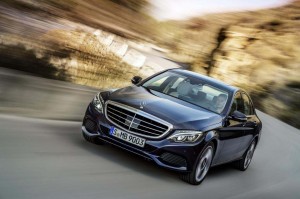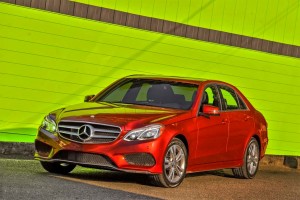
Daimler AG, Mercedes-Benz parent, stands accused of selling more than 1 million diesel-powered cars equipped with a cheating device.
Mercedes-Benz parent Daimler AG appears to be the latest automaker to face accusations of rigging vehicles with “defeat device” technology in order to illegally pass emissions tests, according to a major German newspaper.
The report, by the Sueddeutsche Zeitung, sent shares of the automakers skidding in European trading on Thursday, though several industry analysts now say they don’t expect the report – if accurate to trigger the sort of massive blow to Daimler that was felt by Volkswagen AG. VW has so far spent about $30 billion as a result of its own diesel emissions scandal, while also having to repair or buy back as many as 11 million vehicles.
According to the report, vehicles with excess emissions were sold in Europe and the United States between 2008 and 2016. Notably, Mercedes chose to withdraw its diesel models from the U.S. market this year rather than trying to get their emissions certified.
The news comes as several other manufacturers are struggling to deal with reports of rigged diesel engines in the U.S. and Europe. In Germany last week prosecutors arrested an official who allegedly conspired to sell diesels that he knew did not meet emissions standards.
(For more on that breaking story, Click Here.)
Seven other current or former employees of VW are facing charges, though only one is in custody in the U.S.
Fiat Chrysler Automobiles, meanwhile, is facing allegations that it also rigged several models to illegally pass diesel emissions tests in the U.S. A judge this week said he was ready to appoint compensation fund specialist Kenneth Feinberg to help move towards a settlement in lawsuits aimed at FCA.
(For the latest on the FCA case, Click Here.)
Diesel engines, in general, have come under increasing scrutiny for possible emissions violations. The problem is that so-called “oil-burners” naturally produce high levels of smog-causing oxides of nitrogen, as well as particulates linked to cancer. Manufacturers have developed sophisticated emissions control technologies, but critics claim that when those systems fail to meet tightening clean air regulations some automakers have rigged their products to illegally pass tests.
In Volkswagen’s case, vehicles using its 2.0- and 3.0-liter turbodiesels could determine when they were being run on a dynamometer, rather than a real road, and temporarily reduce emissions levels. In real-world use, emissions would increase by as much as 30 times.
The German newspaper did not offer specific details on what method Daimler allegedly used to rig its own products, nor specify which models were affected – other than to say they were using engines codenamed OM 642 and OM 651.
German prosecutors would not comment on the report, though a spokesman for the automaker called the news report “speculation,” adding that Daimler was working with authorities.
“We take comfort from the fact that this is a European issue, not a U.S. investigation,” analysts from investment firm Bernstein wrote in a note to investors on Thursday. “We do not believe these (Mercedes) cars will lose their certification. Our judgement is that Merc will be asked to recall these cars for a ‘software fix.’”
One estimate suggested that if Daimler were to be fined in the U.S. at the same level as VW it could be forced to pay as much as $300 million. That does not include the payouts the mainstream makers has had to come up with in the form of settlements and buyouts of cars that could not be fixed to come in line with U.S. emissions standards.
(Click Here to see details about France investigating FCA for diesel emission violations.)

